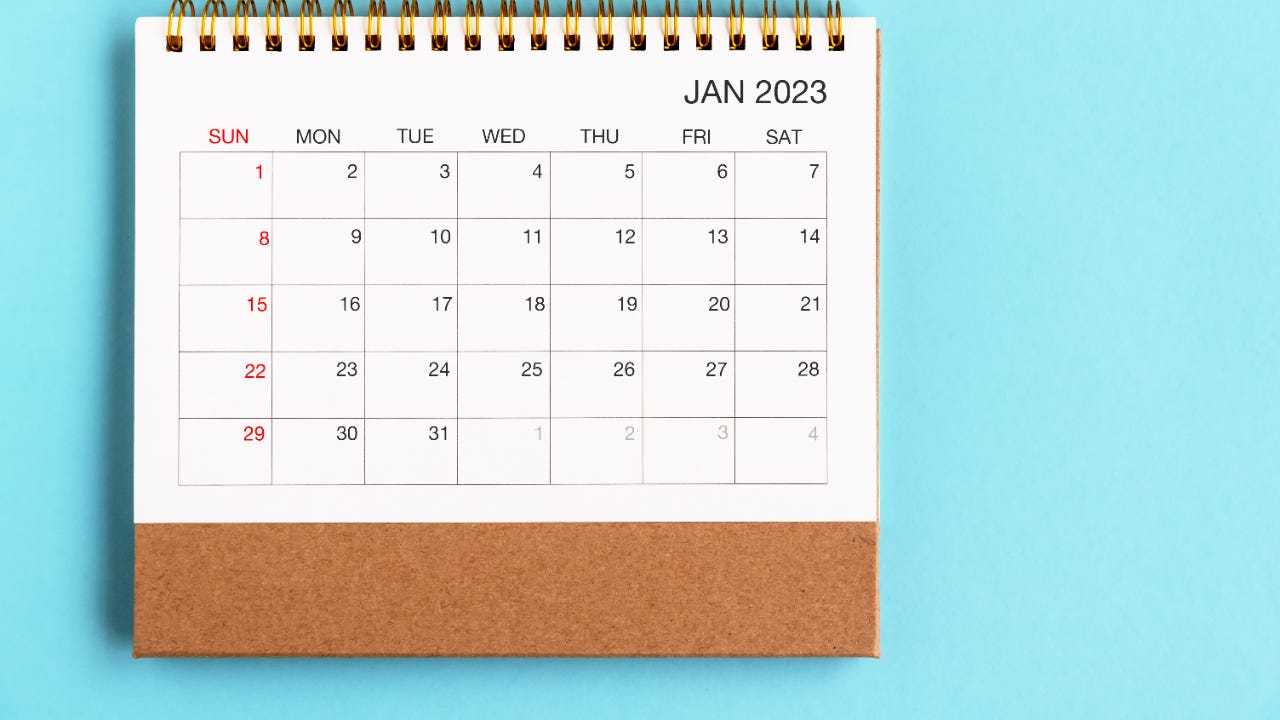Take the 52-week money challenge: What it is and how to do it

Our writers and editors used an in-house natural language generation platform to assist with portions of this article, allowing them to focus on adding information that is uniquely helpful. The article was reviewed, fact-checked and edited by our editorial staff prior to publication.
While inflation has slowed, the increased costs of living have taken a toll on consumers’ bank accounts. Most Americans (80 percent) say they haven’t increased their emergency savings at all since the start of 2024, and about one-third saw their savings diminish since then, Bankrate’s emergency savings survey found.
The new year offers a great opportunity to reevaluate your budget and rebuild savings. For anyone trying to improve their savings in 2025, the 52-week money challenge is a simple and effective way to stay on track. And at the end of the year, you’ll have $1,378 extra dollars to bulk up your emergency savings or put toward a savings goal, such as a vacation fund or a down payment on a home.
Key takeaways
- The 52-week money challenge involves saving an increasing amount of money each week for one year.
- The challenge can be adjusted to fit personal financial circumstances and goals.
- Opening a high-yield savings account and utilizing automated savings features can help make the challenge more manageable and successful.
What is the 52-week money challenge?
Using the 52-week money challenge, you should deposit an increasing amount of money into your savings each week for one year.
Match each week’s savings amount with the number of the week in your challenge. In other words, you’ll save $1 the first week, $2 the second week, $3 the third week, and so on until you put away $52 in week 52.
Those numbers are guidelines, but you can get creative with the amount you save each week if you’d like to save more over the year or you don’t have enough extra cash available for the regular challenge.
If you stick to this challenge throughout the entire year, you’ll save a total of $1,378.
| Week number | Weekly deposit | Total savings |
|---|---|---|
| Week 1 | $1 | $1 |
| Week 2 | $2 | $3 |
| Week 3 | $3 | $6 |
| Week 4 | $4 | $10 |
| Week 5 | $5 | $15 |
| Week 6 | $6 | $21 |
| Week 7 | $7 | $28 |
| Week 8 | $8 | $36 |
| Week 9 | $9 | $45 |
| Week 10 | $10 | $55 |
| … | … | … |
| Week 50 | $50 | $1,275 |
| Week 51 | $51 | $1,326 |
| Week 52 | $52 | $1,378 |
Benefits of the 52-week savings challenge
The 52-week money challenge not only allows you to save a substantial amount of money by the end of the year, but also offers a number of other benefits:
- You start with a small, manageable amount, making it less intimidating for beginners.
- Helps you identify your spending habits as you find ways to save each week.
- You can start it at any time of the year, although aligning it with the New Year can make it a productive resolution.
- Serves as a stepping stone toward achieving larger financial goals, like homeownership or retirement planning.
- Provides a systematic and fun way to save money.
How to get started with the 52-week challenge
It’s important to first find somewhere to store your savings that’s manageable, risk-free and has growth potential.
A simple piggy bank may work for you, but not everyone has cash on hand to deposit each week. Plus, having your savings in such an accessible place may tempt you to dip into it before the end of the challenge. And your savings won’t earn any interest in a piggy bank.
Try these strategies, instead, to make it easier to successfully reach the finish line:
- Open a high-yield savings account. Transfer your money into it each week and keep it there until the challenge ends or longer if you’d prefer. In addition to curbing any impulse spending, a savings account can help you accumulate a bit more over the course of the year through interest earnings.
Once you have a savings habit set up, consider setting up automated savings transfers to keep your savings going. They are standard with most savings accounts, mobile banking apps and money-saving apps. You decide how much you want to transfer from a checking, or other, account per month, and set up an automation to do it for you. If you never see it, you won’t have the chance to miss the cash before it goes into savings.
Adjust the challenge to fit your needs
One way to improve your chances of sticking to the challenge for the full 52-week period is to personalize the process to suit your needs. The details don’t matter as much as actually accumulating savings by the year’s end. Here are some ways you could personalize the process:
Reverse the challenge
Saving money in increasing increments over the course of a calendar year can be difficult, mostly because your spending likely increases in December. If you’re worried about your savings falling off during the holidays, try flipping your money challenge. So, instead, you put away $52 the first week, $51 the second and so on until you owe just $1 the last week of December.
Perhaps you’re anticipating a bonus sometime during the year or a cash gift for your birthday or a holiday. Use those extra sums to get a head start on the tougher weeks or catch up if you’ve fallen behind.
Save a constant amount
Instead of keeping up with changing deposits, you may want to save the same amount every week until you reach your year-end goal. This is helpful if you want to go the automated route, as you can direct the same amount each week or pay cycle. If you transfer $26.50 into your savings every week, you’ll accumulate the same $1,378 as in the regular challenge.
Double up
You may have more ambitious goals. Double up on the challenge by saving $2 in week one, $4 in week two and $6 for week three and so on and so on. At the end, you’ll have saved a total of $2,756.
You can find templates for countless versions of the challenge online, but don’t be afraid to put your own spin on things. The best method is whatever helps you reach your goal by the end of the year.
How to stay on track
Here are some tips for keeping up with the challenge throughout the year:
- Set reminders and benchmarks for yourself to make sure you don’t quit midway through your challenge. You could even utilize your smartphone to set weekly notifications to ensure the challenge stays top of mind.
- Have an end goal in mind before you begin saving, whether that’s a down payment, your emergency fund, a vacation budget or some other goal. Having something to work toward will help you stay motivated throughout the year.
- Stay motivated by intermittently rewarding yourself. For instance, for every 13 weeks that you successfully save (four times throughout the year) reward yourself for keeping pace.
- Ask your friends or family to take the challenge with you and check in with each other monthly to ensure you’re keeping up with your deposits.
Bottom Line
By adjusting the 52-week money challenge to fit your personal financial circumstances, and utilizing such tools as high-yield savings accounts and automated savings features, savers can make the challenge more manageable and increase their chances of success.
To stay motivated, set reminders, have an end goal in mind and involve others for accountability. And once the challenge is completed, you can continue the savings momentum and set new goals for the future.
Why we ask for feedback Your feedback helps us improve our content and services. It takes less than a minute to complete.
Your responses are anonymous and will only be used for improving our website.







